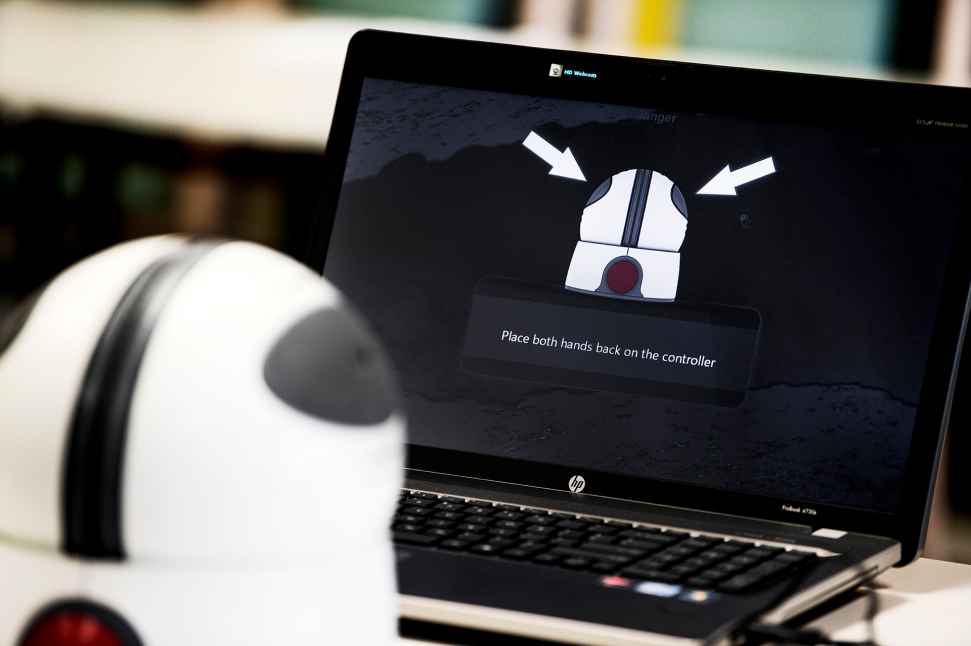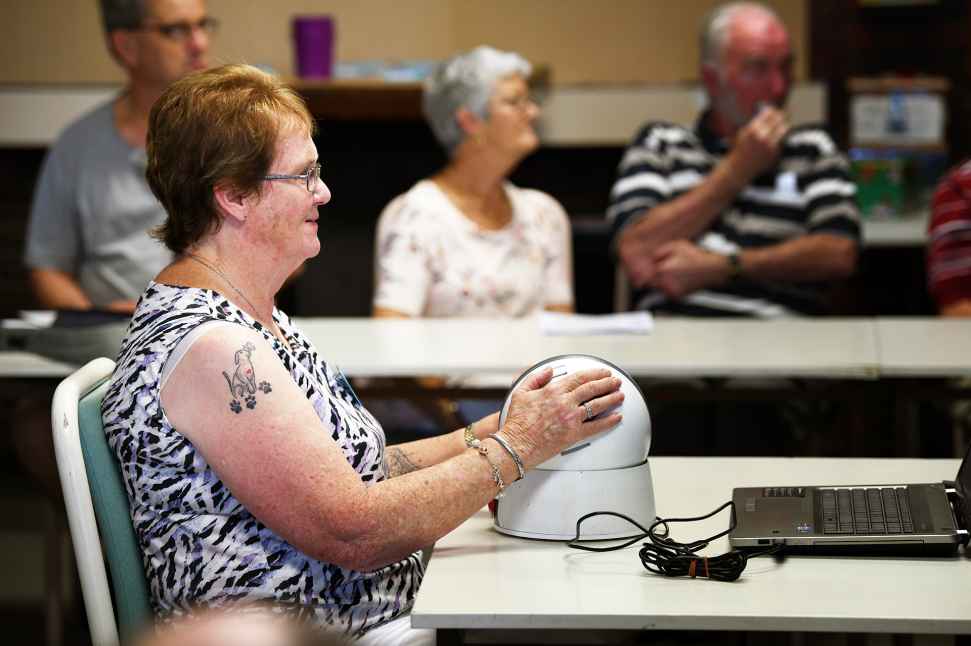01—
Meet Orby
“When can I play with Orby?!” A seven-year-old voice sounds through the house. Orby sits in the middle of the kitchen table, the centre of the family home, ready for an inevitable interaction.
When Orby is at home, there isn’t a day that goes by without a child reaching eagerly for the dome-shaped controller. They will place their hands on either side of Orby’s smooth, round surface and roll Orby from side-to-side as a controller for a catalogue of fun, new games on the laptop or computer screen.
Children love games but not every child can play with a PlayStation, Xbox or even a Wii, with controllers that require a collection of motor skills. A child with cerebral palsy may struggle to bear the weight of the controller, struggle with the finer moments for buttons or manage the movement of a non-dominant hand.
But Orby is no ordinary gaming controller. It’s an accessible, rehab device created by Flinders University biomedical engineer, Dr David Hobbs—and one that has rolled in directions David never saw coming.
What’s in a name?
ce•re•bral / of the brain. pal•sy / lack of muscle control.
Cerebral palsy is the most common childhood physical disability in Australia.
“There was a very deliberate attempt to make something that doesn’t look like a medical device,” … “Making it ‘cool’ was almost as important as functionality, which is quite rare.”
—Dr David Hobbs
How Orby works
The device leverages existing technology—like a computer or (in newer versions) a smartphone—to display the custom-built games and is complemented by the easy-to-use, spherical controller for people with hand impairments. The system is named OrbIT for the orb-shaped controller and the ‘information technology’ in the games catalogue and platform.
The controller, Orby, requires the player to use both hands to push and roll the device. Using both hands is a fundamental part of the rehabilitation elements of Orby’s design. If the player removes one hand, the proximity sensors will pause the game and alert the player with an on-screen reminder. There are no buttons, and it doesn’t require fine motor control.
Orby also provides haptic feedback – vibration under the gamer’s hands align with actions with the game. If the on-screen character runs into a tree or collects a game token, the under-hand pulse adds another dimension to the visuals, drawing players further into the game. It is another feature intentionally designed into the controller to improve the player’s sense of touch. Rehabilitation-specific features like these are intrinsic to the system’s design, yet what is striking from the first glance at Orby is that it does not look like a medical device.
“There was a very deliberate attempt to make something that doesn’t look like a medical device,” David explains. “Making it ‘cool’ was almost as important as functionality, which is quite rare.” Orby began as David’s PhD project and he was responsible for bringing together a team that would work together on different elements of Orby’s design. The diverse group included other biomedical engineers like himself as well as neuroscientists, rehabilitation experts industrial and game designers from various universities along with industry partners. They were all working together to create something that children wanted to use. Many people refuse to use assistive technologies because they are labelling. A walking cane or a wheelchair, for example, immediately indicates that the person can’t operate independently. For children, these devices can be socially isolating.
How Orby got his name
After a while, the controller became more than ‘cool.’ It took on a personality. With many people working on the device, it got passed around regularly and racked up more frequent flyer miles than any of the researchers as it travelled around Australia on trials.
David recalls the transformation, “First it was the OrbIT device, then people started referring to it as a ‘he’; ‘Can you pass him here?’ people would ask. Then, someone, I can’t remember who said it looks like an orb and it became ‘Orb’. But quickly ‘Orb’ became Orby because in typical Australian slang you’ve got to put a y on the end.”
Orby became a character like WALL-E or R2D2. David says Orby is his fourth child. Orby is not only adored by the research team but also the children who trialled him. The first round of trials was with children with cerebral palsy, the initial group David designed his research project for. Later it was adults, including people who have had a stroke or who are living with Parkinson’s disease.
LYN & THE ACCIDENTAL ENGINEER
![]()
Sturt Rd, Bedford Park
South Australia 5042
South Australia | Northern Territory
Global | Online
CRICOS Provider: 00114A TEQSA Provider ID: PRV12097 TEQSA category: Australian University










